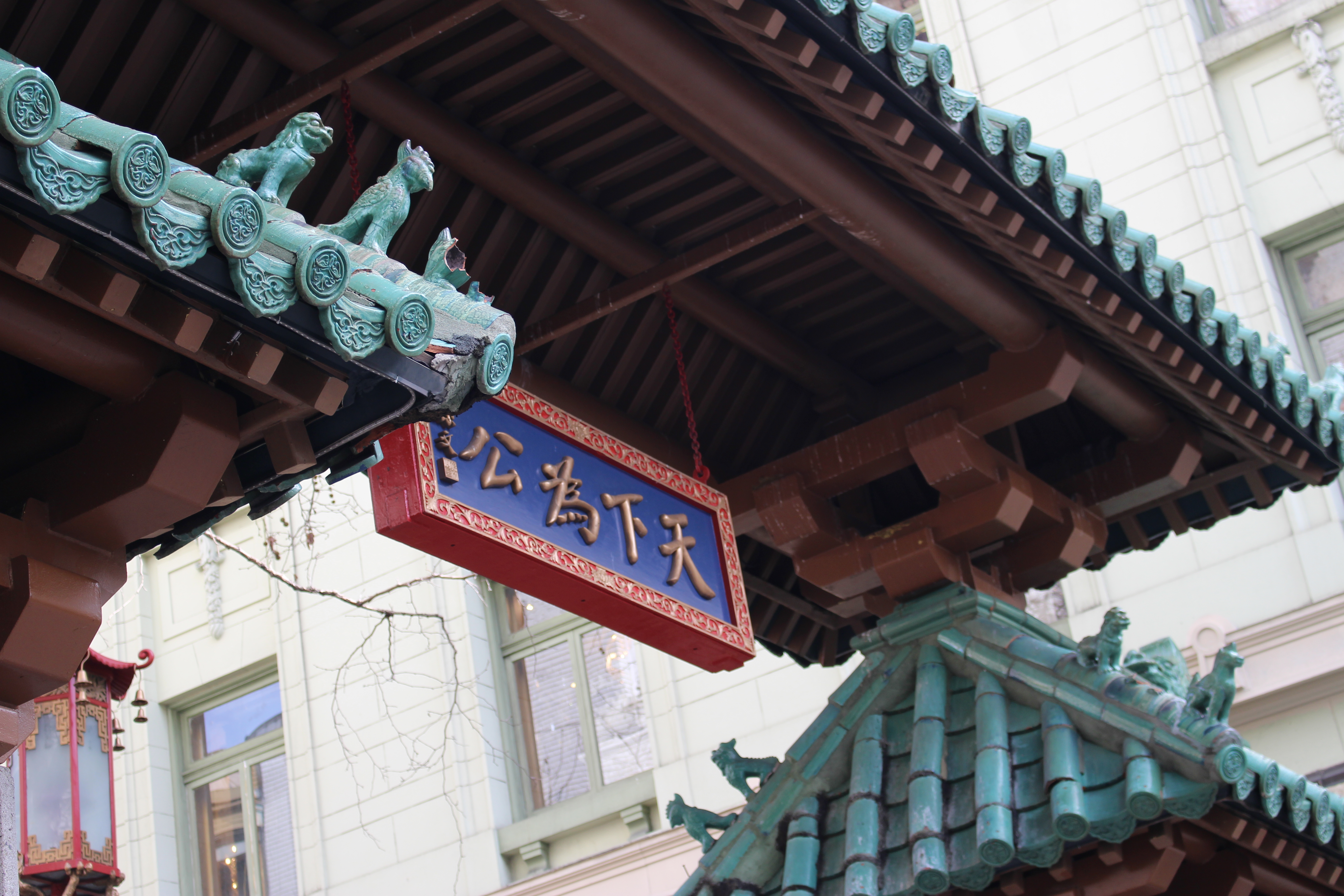

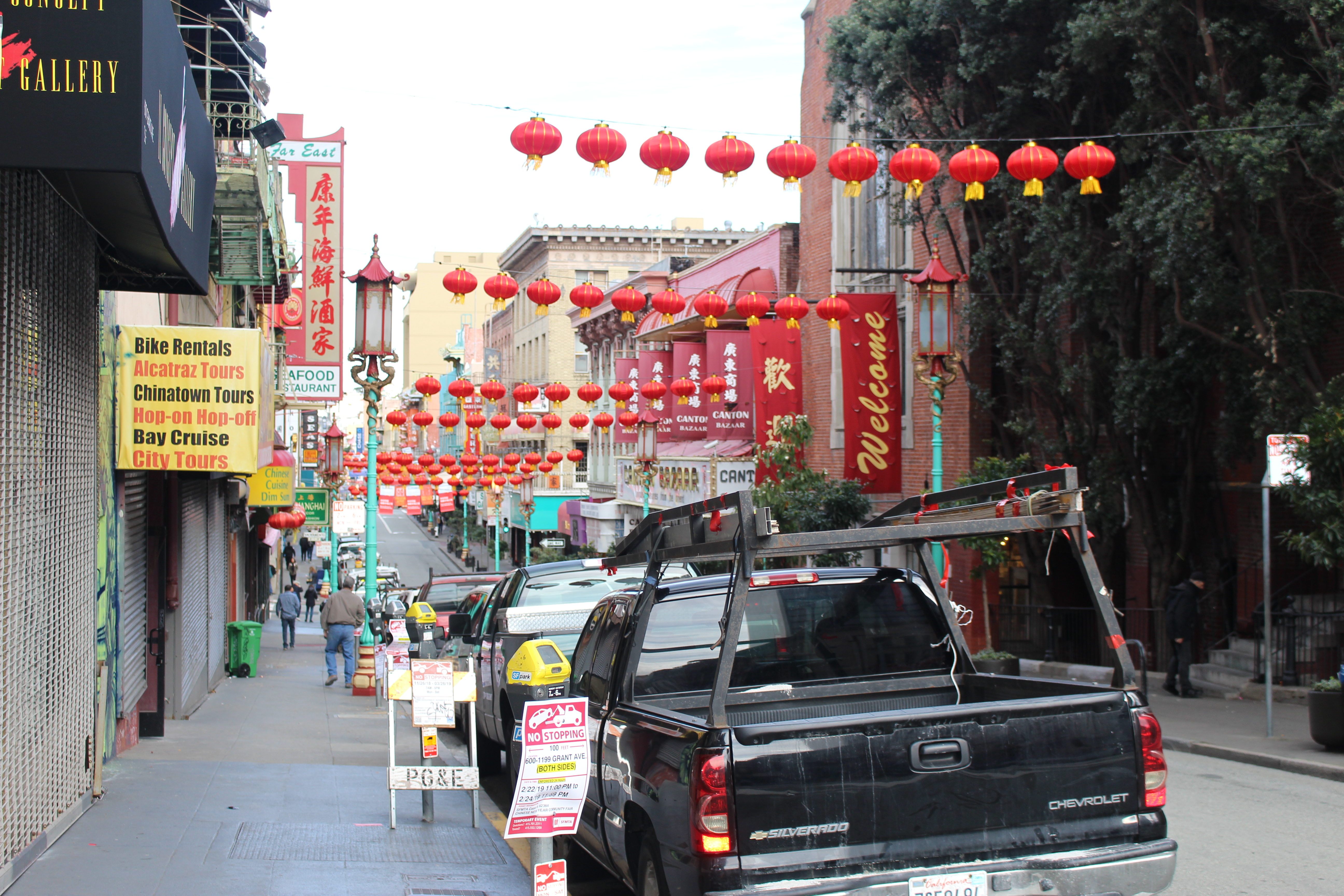
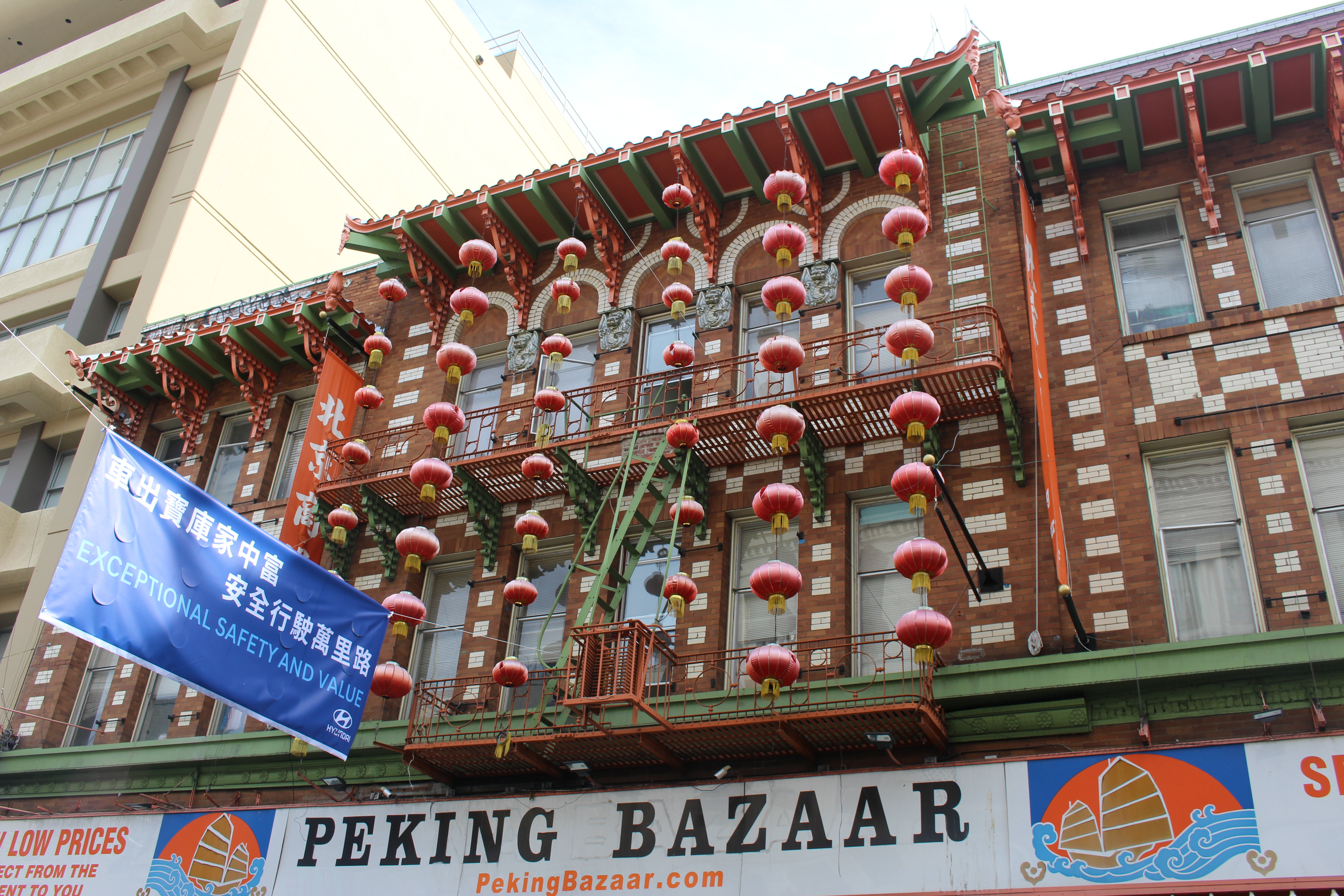
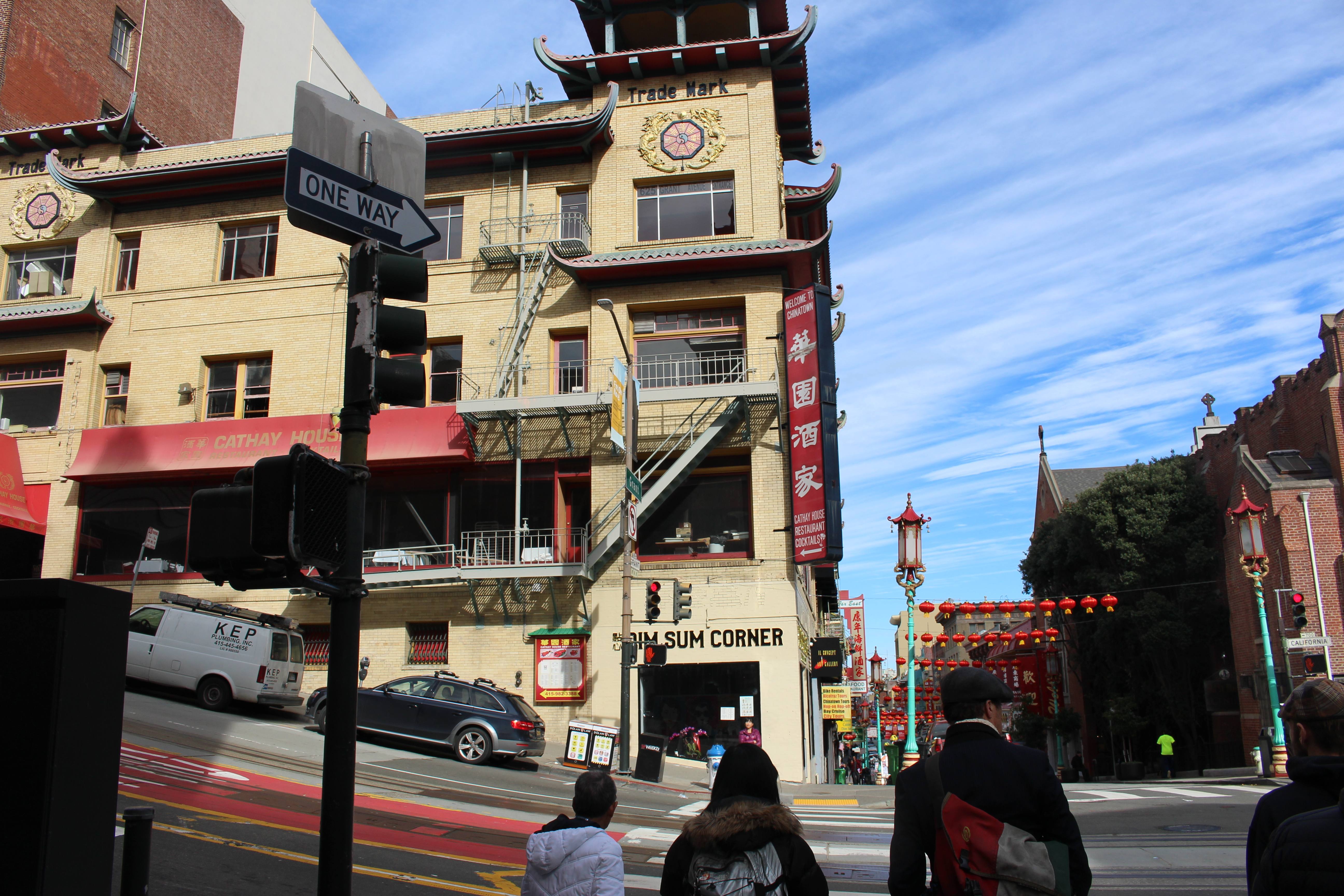
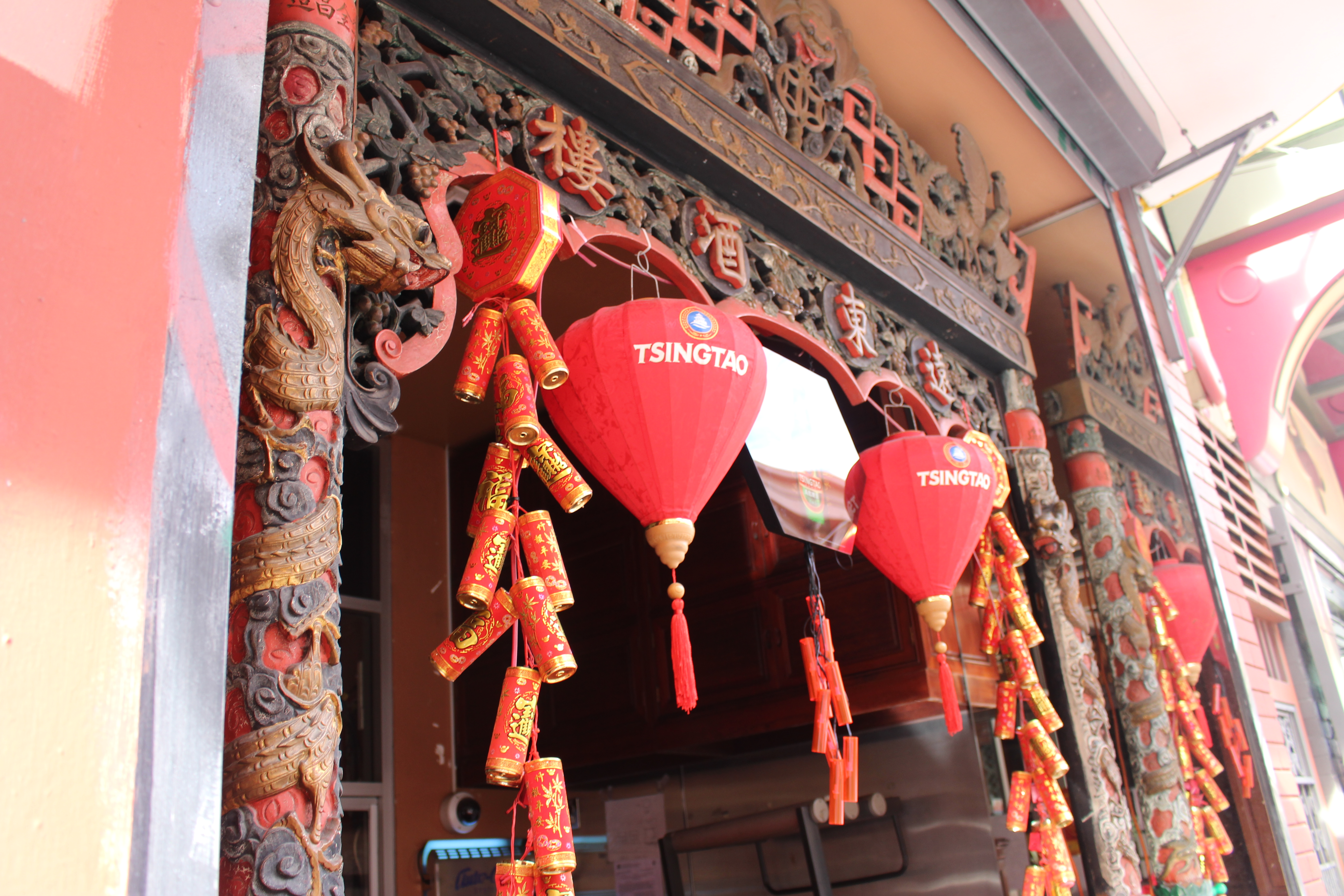


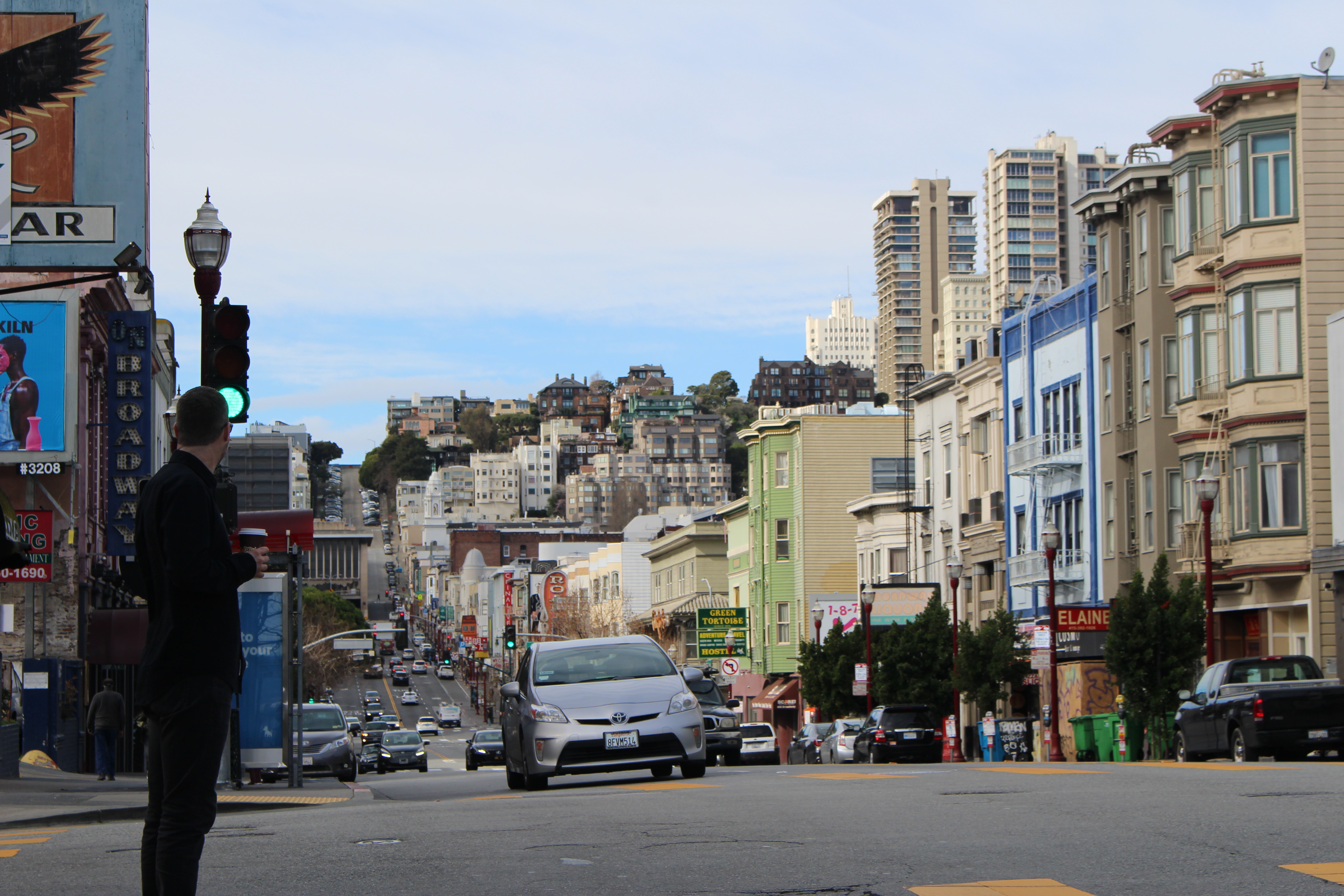
Enlarge
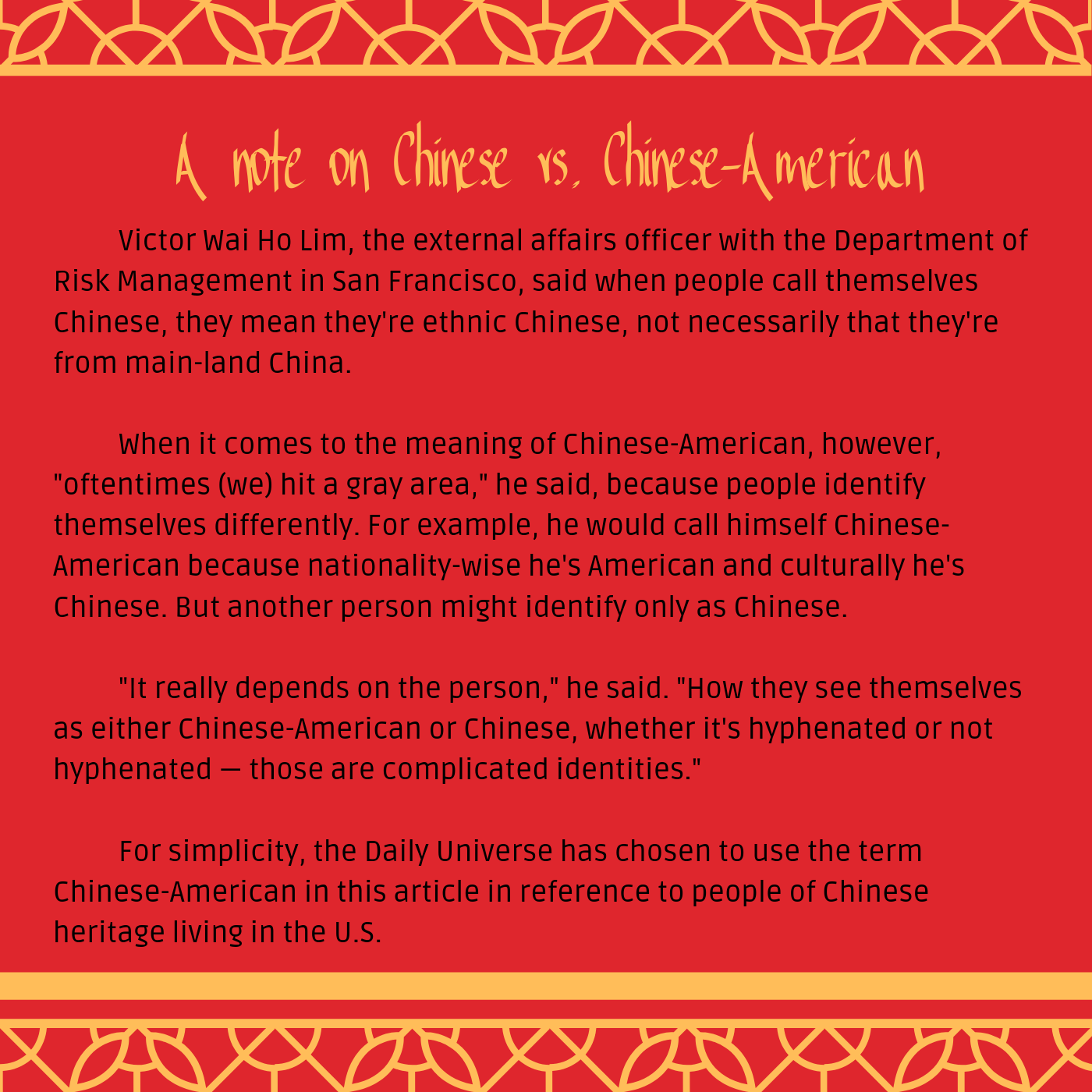
Graphic credit: Kaitlyn Bancroft
SAN FRANCISCO — If there’s one thing Joe Fitzgerald Rodriguez can say about the people in San Francisco’s Chinese-American community, it’s that they read print newspapers.
Rodriguez is a reporter with the San Francisco Examiner and has been covering Chinatown for about the past six years, reporting on the roughly 30 city blocks that make up the biggest Chinatown in the U.S.
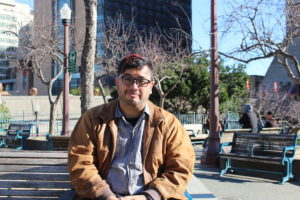
Joe Rodriguez discusses his experiences reporting on Chinatown for the San Francisco Examiner. (Kaitlyn Bancroft)
“Go into any cafe in San Francisco on any given morning, and you see groups and groups and groups of Chinese people reading newsprint,” he said. “They read a lot of print.”
So much print, actually, that some of the Chinese-language newspapers’ print circulation numbers — ranging from the World Journal’s 400,000 copies a day nationally to the Epoch Times’ 1.6 million copies a week globally — are comparable to some of their mainstream competitors, like the New York Times’ weekday circulation of approximately 487,000 copies a day.
Additionally, Asians comprise about 34 percent of San Francisco’s population, according to the United States Census Bureau’s 2018 population estimates, and the Chinese demographic makes up the largest subgroup at 21.4 percent of San Francisco’s population, according to SFGATE. The Chinese-language newspapers in San Francisco serve this demographic, reporting on politics, culture and other facets of the community that mainstream English-language media may not pick up on.
The scope of these newspapers creates other questions:
How does the Chinese-American community perceive these newspapers?
Does the Chinese government have any influence over the Chinese-language press in the U.S.?
If so, does that influence affect the U.S.?
It also raises the question of if Chinese-language newspapers are considered foreign media. Victor Wai Ho Lim, the external affairs officer with the Department of Risk Management in San Francisco, said the local Chinese-language media is not considered foreign media, and reporters with the Chinese-language newspapers in San Francisco are independent operators separate from China.
“They’re all local folks,” he said. “They don’t represent the Chinese government.”
Lim, who regularly communicates with members of the Chinese-language press, also said to the best of his knowledge, the Chinese-language newspapers operating in San Francisco have separate financial operations from the Chinese government and are locally registered.
Additionally, in an August 2018 report to Congress, the Federal Communications Commission states a “United States-based foreign media outlet” is defined only as any entity producing or distributing video programming intended for consumers in the United States. To meet the definition, the entity must also be an “agent of a foreign principal,” which is defined as any person who acts under the direction or control of a foreign country.
By definition, the document continues, the term “agent of a foreign principal” does not include any news or press services, including newspapers.
The newspapers
The San Francisco area is home to four Chinese-language newspapers:
- The Epoch Times
- World Journal
- Sing Tao Daily
- China Press
The Daily Universe spoke with reporters, professors and others to learn how San Francisco’s Chinese-American community perceives each of these newspapers and what, if any, impact they have on the U.S.
THE EPOCH TIMES
Enlarge
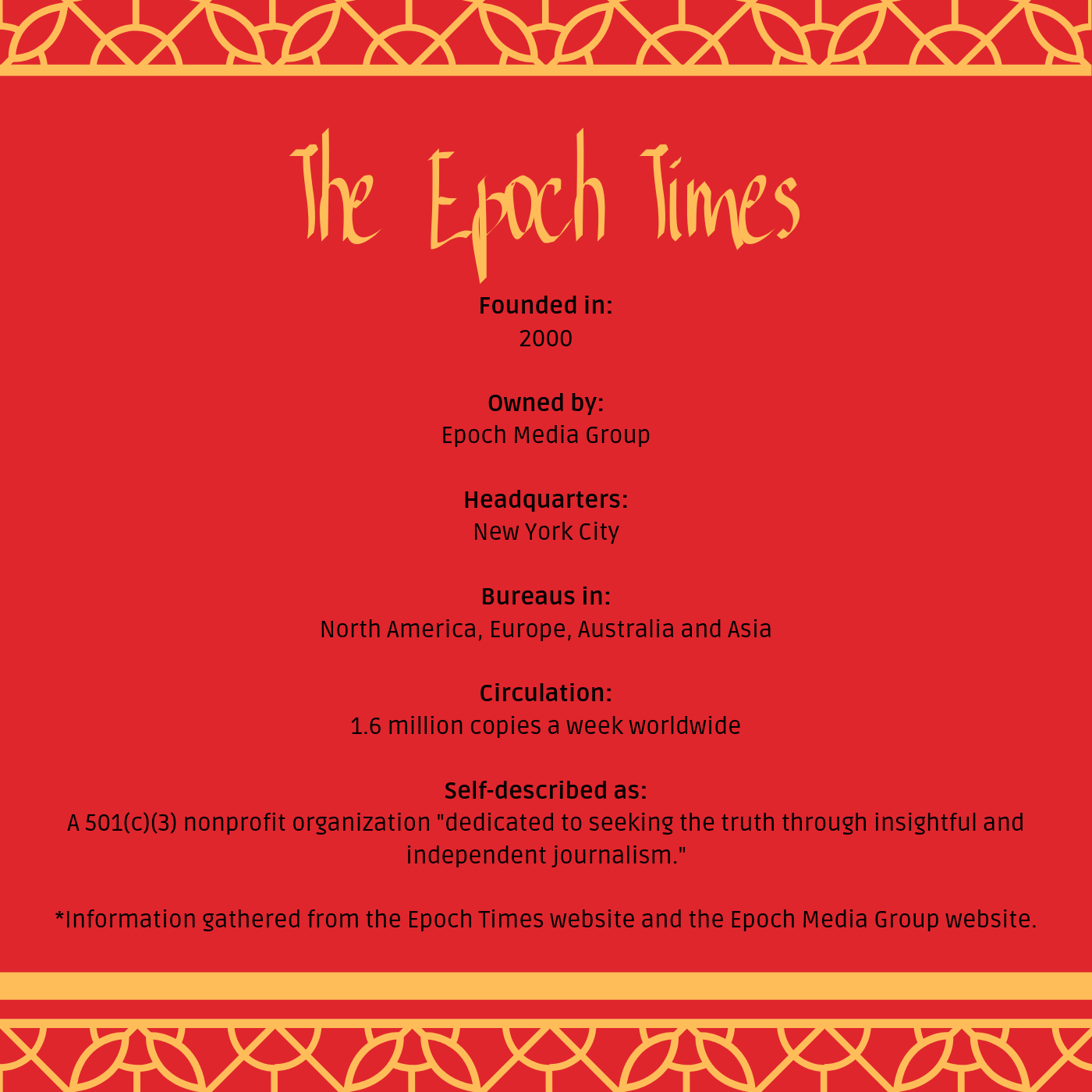
Graphic credit: Kaitlyn Bancroft
Nan Su, a public relations representative and reporter for the Epoch Times, said he believes their newspaper is “absolutely the most important” of the San Francisco area’s Chinese-language newspapers.
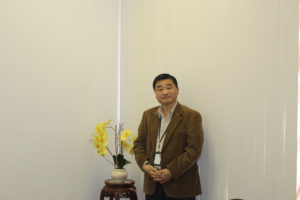
Nan Su is a reporter and public relations representative for the Epoch Times. (Kaitlyn Bancroft)
He also said the Epoch Times is the “anchor” to all the other San Francisco Chinese-language newspapers.
“If we pull out our flag, we shift… say 100 feet, everyone in-between will all shift 100 feet to that direction,” he said.
A 2018 report from Stanford’s Hoover Institution called “China’s Influence & American Interests: Promoting Constructive Vigilance” says the Epoch Times, which is banned in China, is either owned or operated by adherents of the Falun Gong sect, and their reporting on China is uneven.
According to the Economist, the Falun Gong movement is a spiritual discipline banned in China in 1999 and which the country calls an “evil cult.” It involves a set of meditation exercises and texts preaching truth, benevolence and forbearance. In 2014, China named it first on a list of the 11 most active cults in China.
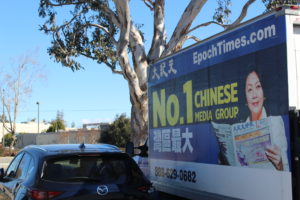
The Epoch Times operates from their offices in Santa Clara, California. (Kaitlyn Bancroft)
Rodriguez said in his experience, the Epoch Times represents “a very vocal sect of the community that protests communism in China” but “their coverage isn’t necessarily the bread and butter daily issues that make up San Francisco life.”
Additionally, BYU Professor of Chinese Shu Pei Wang said the Epoch Times is “very biased” and to take it with a grain of salt.
Rachel Yu Liu, an assistant professor of Chinese at BYU, compared an English-language version of the Epoch Times from the week of Jan.31-Feb.6, and a Chinese-language version of the Epoch Times from Feb.16. She said while the English-language version featured articles about the U.S.-China trade war and the technology company Huawei, the Chinese-language version includes many negative articles about the Communist Party. For example, Liu pointed out articles about an increase of Communist spies in the business community and threats to U.S. space safety from the Communist Party.

Epoch Times employees work in the newspaper’s offices in Santa Clara, California. (Kaitlyn Bancroft)
“Of course every government has negative things, but I can’t believe a newspaper that always talks about the negative side of the party,” she said.
Despite the criticism, Su pointed to their slogan: “Truth and tradition.”
“I don’t think that we are biased. I think that we are telling people the truth,” he said.
Su said the Epoch Times has “paid a lot” for trying to tell the truth. For example, he said one of their editors went back to China in 2010 and was ultimately sentenced to 10 years in prison because of his work with the Epoch Times.
WORLD JOURNAL
Enlarge
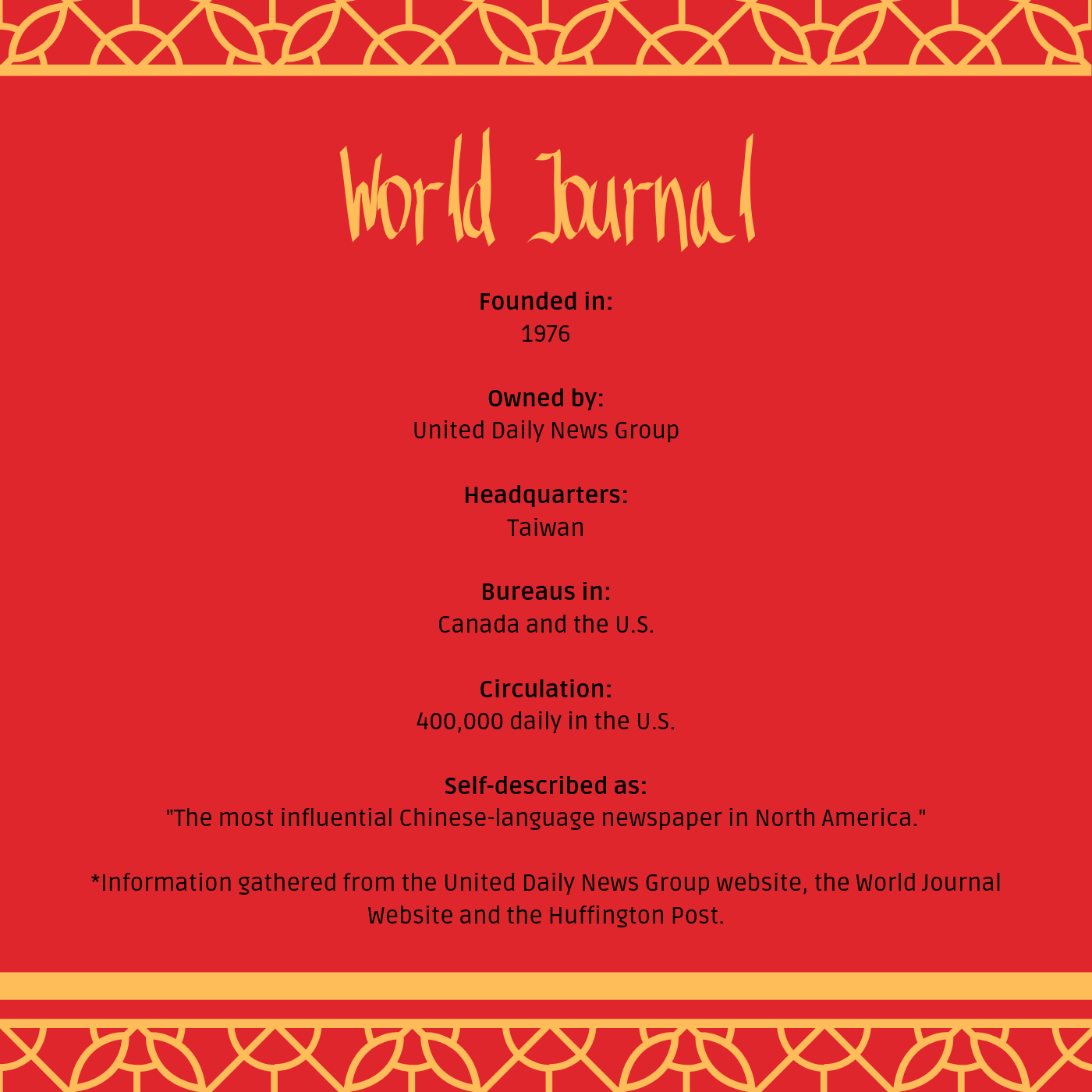
Graphic credit: Kaitlyn Bancroft
Rodriguez said World Journal is one of two largest Chinese-language newspapers in the San Francisco and the Bay Area, the other being Sing Tao Daily.
“They are probably the most prominent, the most read (and the) most respected,” he said, referring to both newspapers.

Copies of the World Journal newspaper are available on the streets of San Francisco’s Chinatown. (Kaitlyn Bancroft)
The Hoover Institute report states for years, World Journal was the “premier Chinese-language paper in the United States” and one of only six newspapers owned by the United Daily News, which the report calls Taiwan’s most influential newspaper company.
“The paper once dominated news coverage in Chinatowns across America, and it acted as the voice of the Chinese Nationalist Party of Taiwan,” as well as covering events such as the death of jailed Chinese human-rights advocate and Nobel Peace Prize laureate Liu Xiaobo, the report reads.
However, the report continues that in recent years, World Journal’s coverage has shifted to become more pro-People’s Republic of China, which may be due to the newspaper’s owners in Taiwan wanting to grow their business in China.
World Journal Executive Editor Vincent Chang, however, is quoted in the Hoover Report as saying, “I have made it my goal to make this paper as neutral and journalistic as possible,” adding that the paper is “independent of any government influence.”

Portia Li discusses her experiences reporting for the World Journal. (Kaitlyn Bancroft)
Portia Li, a journalist with World Journal, said she wouldn’t call her newspaper biased; rather they emphasize Taiwan and China because the World Journal was founded in Taiwan.
Wang said World Journal is not biased against the Chinese government and “tries to be as objective as possible,” while Liu said they have their own journalists, but still get information from Chinese or Taiwanese news sources, resulting in more balanced reporting.
BYU student Daniel Xu said because World Journal is from Taiwan, he feels it’s more unbiased than other Chinese-language newspapers. Looking at a Chinese-language version of the World Journal from Feb, 20, he said he saw stories about Chinese politics that used neutral wording.
SING TAO DAILY
Enlarge
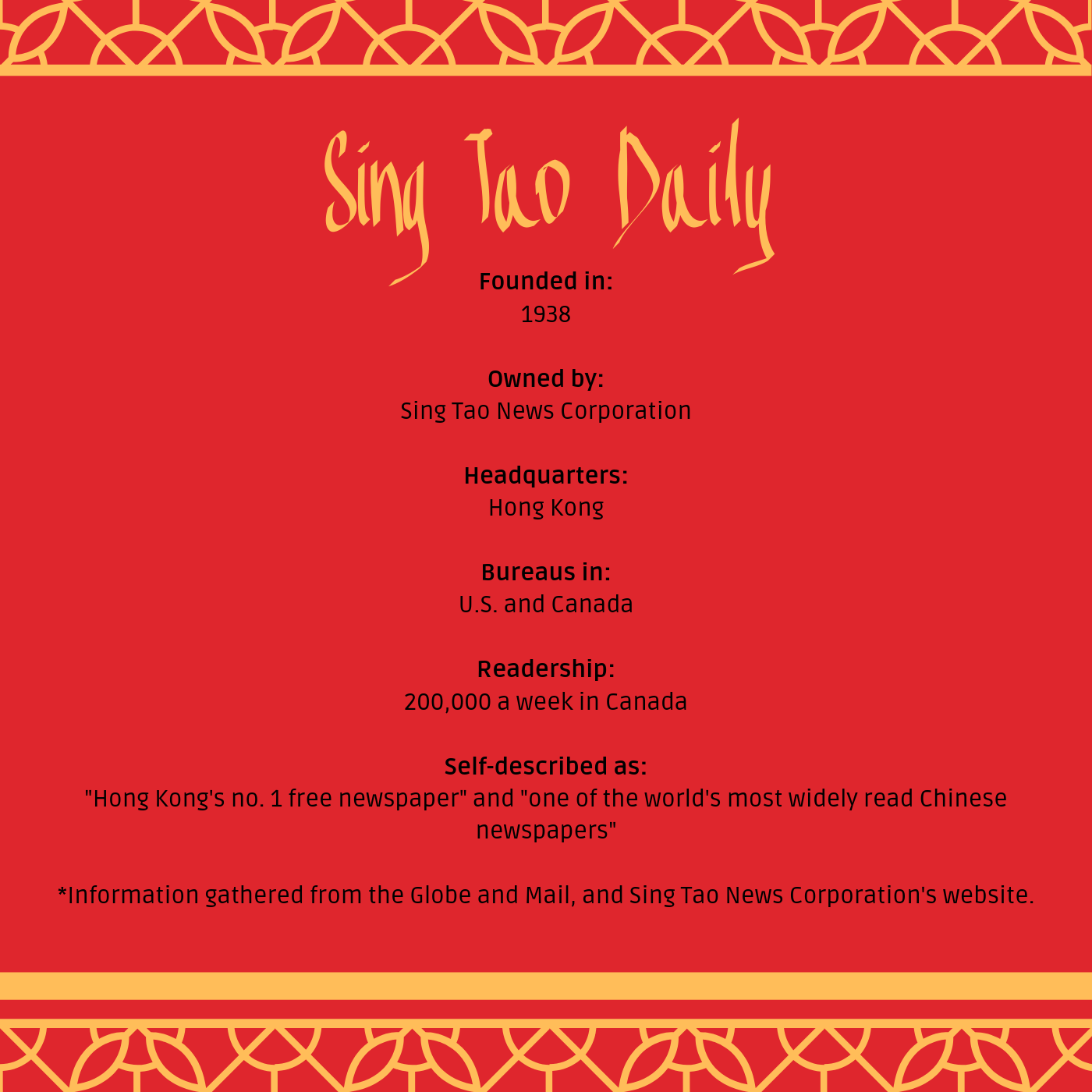
Graphic credit: Kaitlyn Bancroft
Multiple phone calls and emails to Sing Tao Daily requesting an interview were not returned. The Daily Universe also attempted to contact Sing Tao Daily directly at their offices in San Francisco, but was given only a phone number.
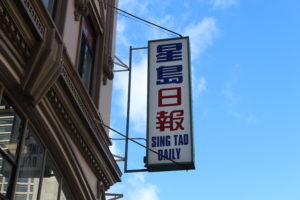
Sing Tao Daily’s offices are located in San Francisco’s Chinatown. (Kaitlyn Bancroft)
The Hoover Institute report states the owner of the Sing Tao Newspaper Corporation was forced to divest her interest in the paper in the mid-1990s, and Sing Tao was taken over by a pro-People’s Republic of China businessman who in 1998 became a member of the Chinese People’s Political Consultative Conference, which the BBC called China’s “most powerful political advisory body.”
“Sing Tao’s coverage is now aligned with that of state-run media from Beijing,” the report reads, adding that in May 2001, Sing Tao established a joint venture with state-run Xinhua News Agency to create an information-service company called Xinhua Online.
Lim, however, stated, “Sing Tao is based in Hong Kong, but the way they operate here is not a direct ownership of what’s over there.”
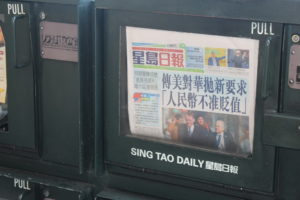
Copies of the Sing Tao Daily newspaper are available on the streets of San Francisco’s Chinatown. (Kaitlyn Bancroft)
Rachel Yu Liu added Sing Tao Daily is a more balanced newspaper because it’s not necessarily positive or negative towards the Chinese government.
Additionally, Rodriguez said most often when members of the Chinese-American community in San Francisco are reading a newspaper, they’re reading Sing Tao Daily.
CHINA PRESS
Enlarge
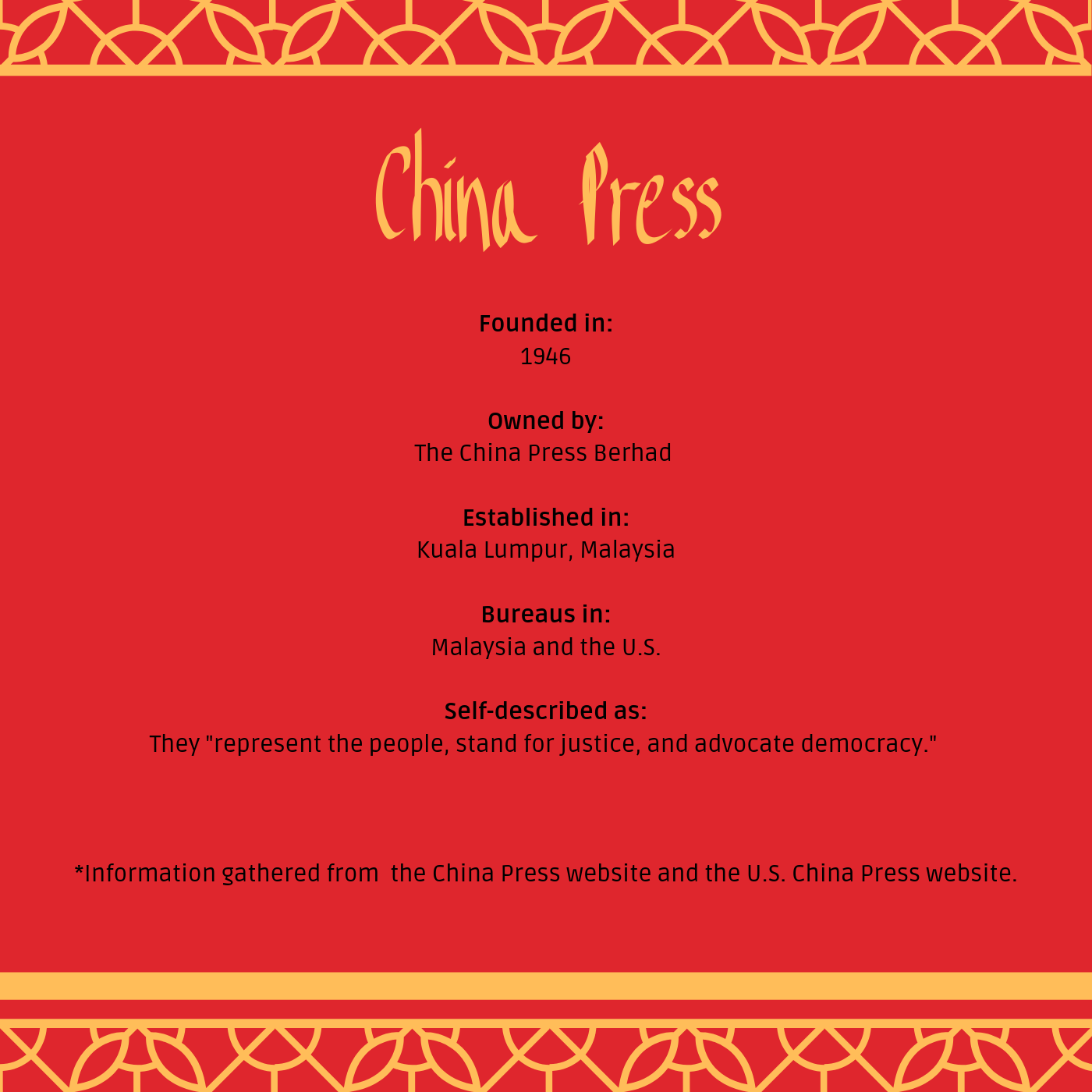
Graphic credit: Kaitlyn Bancroft
Multiple phone calls and emails to China Press requesting an interview were not returned. The Daily Universe also attempted to contact China Press directly at their offices in San Francisco, but found a vacant building at their listed address.

The address listed for the offices of the China Press is a vacant building in San Francisco’s Chinatown. (Kaitlyn Bancroft)
The newspaper’s website states it was created to “represent the people, stand for justice, and advocate for democracy.”
However, Portia Li with World Journal said China Press is basically funded by the Chinese government.
“I’m not saying they send out wrong information, but they pick the stories that match their interests,” she said.
OTHER NEWSPAPERS
China Daily — an English-language newspaper published by the People’s Republic of China — is available in San Francisco, as well as across the world, according to their website. It is owned by Media Chinese International Limited. Content is produced mainly in China, and the newspaper’s expansion efforts have included putting paid inserts into the New York Times, according to a 2012 Huffington Post article. Its website claims the newspaper has a global print circulation of 900,000 and states the company has put inserts in newspapers such as the Washington Post and the Wall Street Journal.
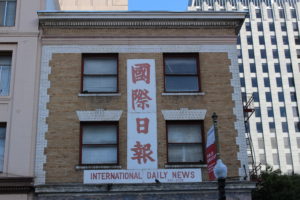
The International Daily News offices sit abandoned in San Francisco’s Chinatown. (Kaitlyn Bancroft)
Heather Lau, a public relations representative with media company Ming Pao Holdings Limited, said the San Francisco edition of Chinese-language newspaper Ming Pao has ceased. They still operate in China and Canada, according to the website of Media Chinese International Limited, which Ming Pao Holdings Limited is a subsidiary of. In 2019, Ming Pao claimed a weekly readership of 309,359 in Canada.
Additionally, Lim said Chinese-language newspaper International Daily has been defunct in San Francisco for more than a decade.
Soft power influences?
In a Foreign Affairs article called “How Sharp Power Threatens Soft Power,” Harvard University Professor Joseph S. Nye Jr. writes soft power is “the ability to affect others by attraction and persuasion rather than through the hard power of coercion and payment.”
See-Won Byun, an international relations professor at San Francisco State University, added while research interests used to focus on Chinese hard power such as economic and military influence, it’s now expanding to include soft power such as media, which can be used as “a tool to promote soft power by shaping public opinion abroad.”

See-Won Byun teaches international relations at San Francisco State University. (Kaitlyn Bancroft)
Rodriguez said though he doesn’t know if there’s enough Chinese influence in the U.S. to censor Chinese-language newspapers in San Francisco, “certainly there have been efforts to bully those reporters.” For example, he said Li has been protested because of controversial topics she’s written about.
“For reporters in the Chinese press, I have an understanding that there’s only so far they can push with what they know is happening lest certain people in the community push back (and) say, ‘No, this is not how we see the situation,’” Rodriguez said.
He also said in any city that functions almost like a small town, there’s some amount of soft power tamping down on certain subjects.
“I would say we avoid that to an extent here, but there are certainly people you don’t cross,” he said, adding though he doesn’t have any personal knowledge of times the Chinese-language press would “crack down” on reporters, a personal pull always exists between editors and reporters about what reporters can and can’t cover.
Li added that for some Chinese-language newspapers, she can see how there might be a degree of self-censorship by tending to cover only positive news.
She also said she occasionally receives comments from community members about how she should write more positive news stories, but overall, the Chinese-American community in San Francisco enjoys press freedom in the U.S.
In his Foreign Affairs article, Nye writes although soft power is rarely sufficient on its own, it is a “force multiplier” when coupled with hard power, and China spends $10 billion a year on its soft power instruments.
However, he acknowledges that out of 30 countries assessed for soft power influence, China ranks low at 25.
“Authoritarian countries such as China and Russia have trouble generating their own soft power precisely because of their unwillingness to free the vast talents of their civil societies,” Nye writes.
Additionally, he writes that shutting down legitimate Chinese soft power tools can be counterproductive, such as if China and the U.S. avoided exchange programs that could be good for both countries.
Therefore, in responding to soft power threats, “democracies should be careful about offensive actions,” Nye writes. “It would be a mistake for them to imitate the authoritarians and launch major programs of covert information warfare.”
‘Culturally competent’ reporting
Rodriguez said Chinese-language newspapers “dial down” on communities that need them more, and contribute “a depth of knowledge about their community and the people that they write about.”
Lim added the Chinese-language press represents a marginalized community that mainstream papers may choose not to cover because editorial staffs sometimes don’t see the value in doing so.
He also said it provides “culturally competent” reporting because many English-language reporters don’t speak other languages.
However, Su said while the Chinese-language press does bring some contributions to journalism, those contributions “can only be made if the media provides honest and truthful reporting.”
He continued if newspapers are censored or self-censored, the whole point of press freedom is missed.
“We have to realize that what we (as journalists) are given (are) the rights to provide honest and truthful reporting without government censorship,” he said.
